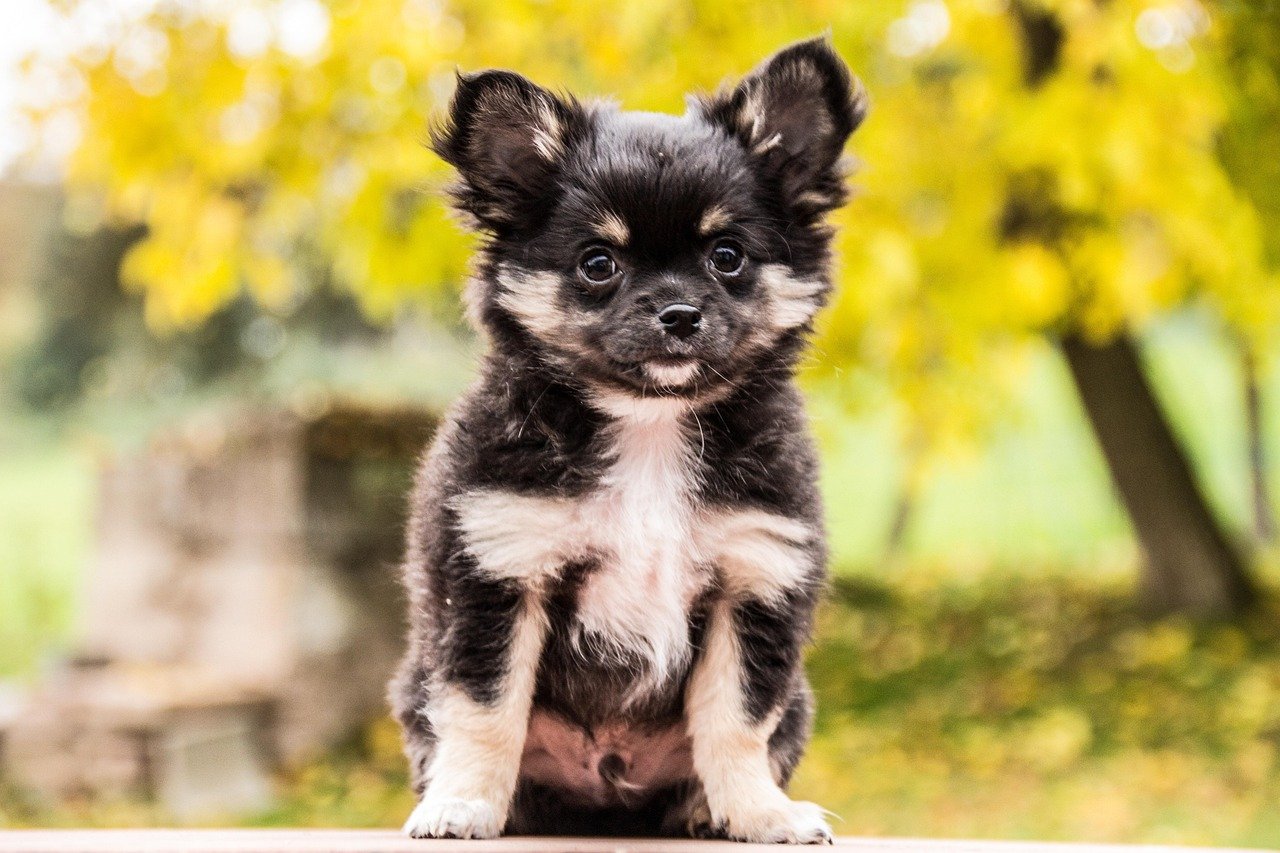The world of pet ownership can be both incredibly rewarding and surprisingly challenging, especially when it comes to choosing the right companion for your golden years. While many articles celebrate Chihuahuas as perfect pets for elderly individuals, the reality is far more complex than most people realize. These tiny dogs, with their enormous personalities packed into pint-sized frames, might seem like ideal companions for senior citizens. However, beneath their adorable appearance lies a breed with specific needs and challenges that can overwhelm even the most well-intentioned older owner.
The decision to bring a Chihuahua into your life during your senior years requires careful consideration of numerous factors that extend far beyond their cute appearance and small size. What appears to be a manageable, apartment-friendly companion can quickly transform into a demanding responsibility that conflicts with the lifestyle changes that naturally come with aging.
Excessive Energy and Exercise Demands

Don’t let their tiny stature fool you – Chihuahuas are tiny dynamos of the dog world, known for their big personalities packed into pint-sized frames. These feisty little canines often believe they are much larger than they actually are, strutting around with a confidence that would put much bigger dogs to shame. This confidence translates into surprisingly high energy levels that can exhaust seniors who are looking for a calm, quiet companion.
While many assume that small dogs require minimal exercise, Chihuahuas demand regular physical activity and mental stimulation. The 1-year-old young adult is alert, active, and wants to be kept engaged. There is, however, less hyper behavior. Even as they mature, their energy requirements remain substantial, requiring multiple walks and playtime sessions that can be physically demanding for elderly owners with mobility limitations.
Aggressive Protective Instincts

Chihuahuas possess an intense protective nature that can create significant challenges for senior owners. These dogs often view themselves as mighty guardians despite their small size, leading to aggressive behaviors toward strangers, delivery personnel, and even visitors. This overprotective tendency can become particularly problematic for seniors who may have difficulty physically controlling their pet’s reactions or managing confrontational situations.
The breed’s natural suspicion of strangers can also interfere with necessary services that seniors often require, such as home healthcare workers, maintenance personnel, or family members providing assistance. Most older dogs dislike being pestered by puppies and young children. Some will tolerate it more patiently than others, but it’s not fair to expect them to put up with it endlessly. If they are experiencing pain or disorientation from an age-related health problem, they might growl or nip in situations which wouldn’t have provoked them when they were younger.
Complex Health Issues Requiring Specialized Care

Some of the health issues that the veterinarian will testing for include liver and kidney disease, heart issues, prostate disease (for males), testicular cancer (for un-neutered males), breast and uterus cancer (for un-spayed females), canine diabetes, arthritis, and cognitive issues. The extensive list of potential health problems that Chihuahuas face requires regular veterinary monitoring and can result in substantial medical expenses that may strain a senior’s fixed income.
These health concerns often require specialized treatment approaches and multiple veterinary visits throughout the year. As opposed to the yearly wellness checks that adult dogs receive, seniors need to be seen twice per year. Each veterinarian has their own preferences; but, most like to begin these twice-per-year screenings at age 8. The complexity and frequency of medical care needed can become overwhelming for elderly owners who may already be managing their own health challenges.
Demanding Attention and Separation Anxiety

Chihuahuas are notorious for their intense attachment to their owners, which can evolve into debilitating separation anxiety. This psychological condition manifests in destructive behaviors, excessive barking, and extreme distress whenever left alone. For seniors who may need to spend time away from home for medical appointments, family visits, or other obligations, dealing with a dog suffering from separation anxiety can be emotionally exhausting.
A distinct feature of geriatric (late-onset) separation anxiety is that it can manifest as nighttime anxiety, almost as if your dog views your sleeping as a form of separation. Your dog may keep you awake by pacing, panting and pawing at you, and demanding attention. This constant need for attention can severely impact a senior’s quality of sleep and overall well-being, creating a cycle of exhaustion and stress.
Mobility and Safety Concerns

The physical challenges that come with aging can make caring for a Chihuahua particularly difficult and potentially dangerous. Older dogs inevitably become less mobile, and also lose their footing and injure themselves more easily. If your older Chihuahua has been navigating steps and furniture in our house until now, you might find they start struggling, in which case installing ramps will help. However, these mobility issues don’t just affect the dog – they can create hazardous situations for elderly owners.
Like other toy breeds, due to their small size chihuahuas are at high risk for spinal trauma and injury. Chihuahuas are unaware of how small they really are and they love to be with their owners and playing with other pets. This puts that at risk for an unintentional back injury, nerve damage, and in the most severe cases paralysis. Senior owners may struggle to quickly react to prevent injuries or may accidentally step on or trip over their small companion, creating risks for both parties involved.
Expensive Veterinary Costs

The financial burden of owning a Chihuahua can be overwhelming for seniors living on fixed incomes. All the vet “hospitals” in my area are corporate owned so there is no competitive pricing. It costs more to take my pup to the vet than it does for me to see a human Dr. This reality reflects the broader challenge many seniors face when dealing with pet healthcare costs.
Beyond routine care, Chihuahuas are prone to expensive medical conditions that can require significant financial investment. If it’s just one hip, it can run between $3,000-$7,0000. Both hips can go up to $14,000. These substantial costs for procedures like hip replacements or other surgical interventions can quickly deplete a senior’s savings or create impossible financial decisions between their own healthcare needs and their pet’s requirements.
Unpredictable Temperament Changes with Age

Some chihuahuas get a little crotchety as they enter their senior years and don’t handle stressful situations as well as they did when they were younger. Sometimes things that didn’t bother them when they were younger, suddenly scare them such as thunderstorms. These personality changes can catch senior owners off guard and create additional challenges in managing their pet’s behavior.
And sometimes dementia sets in and changes their personality drastically. If you notice signs of dementia such as confusion, staring into space for long periods of time, or other personality changes, get your dog to your vet as soon as possible. The development of cognitive dysfunction in aging Chihuahuas can be particularly difficult for elderly owners to handle, as it requires patience, understanding, and often extensive behavioral management that may exceed their physical and emotional capabilities.
Grooming and Physical Care Challenges

While Chihuahuas may seem low-maintenance due to their size, they require regular grooming and physical care that can become increasingly difficult for seniors with limited mobility or dexterity. This makes grooming sessions quick and hassle-free, which can be important for seniors who may have limited mobility or strength. Additionally, Chihuahuas are small in size, making it easier for seniors to handle grooming tasks such as bathing and nail trimming. However, this doesn’t account for seniors with arthritis or other conditions that affect fine motor skills.
The precision required for nail trimming, ear cleaning, and dental care can be challenging for elderly individuals. Additionally, For seniors, hard foods can be especially challenging due to dental issues (Chihuahuas especially tend to have dental issues as they get older). Whether your senior has lost teeth over time, has less energy, or has the same full dentition they’ve had their entire lives, a soft diet is easier on senior jaws, as well as on the senior digestive system. Managing these specialized dietary and care requirements requires ongoing attention and physical capability that may diminish with age.
Temperature Sensitivity and Climate Control

Chihuahuas in general tend to be cold-natured. Just like people tend to get cold more often in their senior years, well chis do too. So do keep a few cuddly sweaters on hand for your dog along with lots of soft blankets. This temperature sensitivity creates additional responsibilities for senior owners who must constantly monitor and adjust their pet’s comfort levels.
If your Chihuahua hasn’t needed a wardrobe yet, you might find that from 10 or 11 years old onwards, they start to feel the cold more. Especially if their fur gets thinner, or they lose a little weight. Lightweight layers can help trap warm air next to their skin and make them more comfortable. Managing multiple clothing changes, heating requirements, and climate control can become burdensome for seniors who may already be struggling with their own temperature regulation needs and energy costs.
Long-Term Commitment During Uncertain Times

Did you know Chihuahuas are among the top pooches when it comes to living it up in old age? Yep, they’re record holders, often living well into their late teens and can even reach their twenties! So, get ready to spend lots of quality years with your senior furball. While longevity might seem like a positive trait, it represents a significant long-term commitment that may not align with the realities of aging.
Seniors in their seventies or eighties who adopt a Chihuahua must consider what will happen to their pet if their own health declines or if they require assisted living arrangements that don’t accommodate pets. I’m 76 and I need to feel his little heart beat against mine when I hold him. I have a little pug and I love him but it’s not the same as him. I miss him so much. I need a little baby that I can hold and feel their heart beat against mine. The emotional attachment that develops can make future care decisions incredibly difficult and heartbreaking for elderly owners who may outlive their ability to provide proper care.
While the appeal of a small, seemingly manageable companion is understandable, the reality of Chihuahua ownership presents numerous challenges that can significantly impact a senior’s quality of life. From their demanding energy levels and complex health requirements to their financial costs and long-term commitment needs, these tiny dogs require resources and capabilities that may exceed what many elderly individuals can comfortably provide.
What would you have guessed about these hidden challenges of Chihuahua ownership for seniors?

Esther is from India; the heartbeat of South Asia, holding a Master’s degree in Zoology and a postgraduate diploma in Animal Welfare. Her enthusiasm for animal welfare drives her passion and dedication to working for animals, ensuring their well-being, and advocating for their rights. With a solid academic background and hands-on experience, she is committed to making a positive impact in the field of animal welfare. In her free time, she enjoys embroidery and sewing. As a Chennaite from Tamil Nadu, Esther loves Bharathanatyam, an Indian classical dance form.






